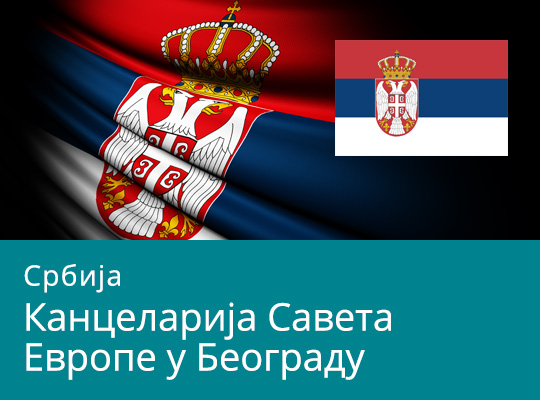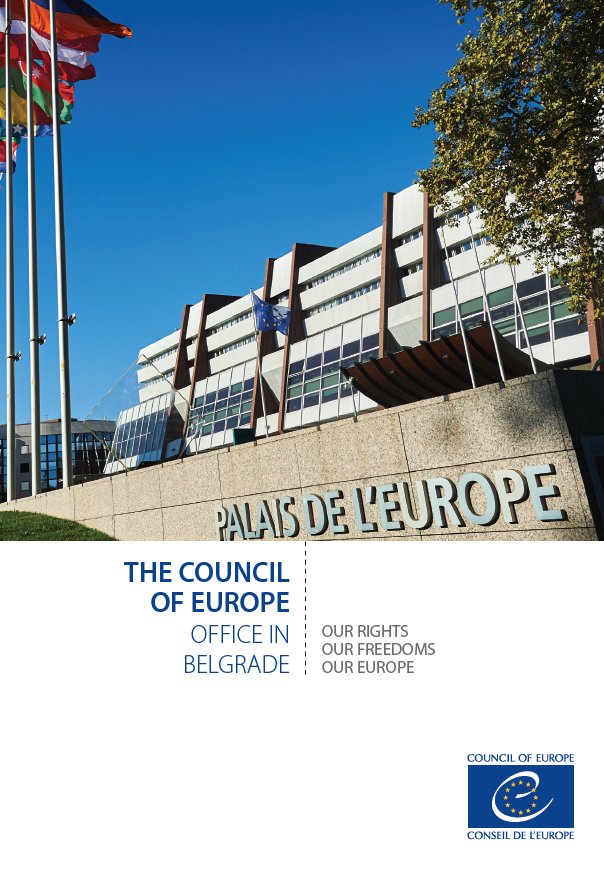Flessenkemper: Council of Europe to help Serbia’s EU accession process
Interview with Tobias Flessenkemper, Head of the Belgrade Office of the Council of Europe, appointed by the Secretary General of the Council of Europe on 1 October 2018. His previous postings include the EU European External Action Service (EEAS) in Bosnia and Herzegovina, the Council of the EU in Brussels, Skopje and Sarajevo and the OSCE.
European Western Balkans: What do you see as the most important challenges for Council of Europe’s Belgrade office in the coming years? Where do you expect your work to be focused?
Tobias Flessenkemper: The common challenge for the Council of Europe is to uphold the values which are the common heritage of European peoples and the true source of individual freedom, political liberty and the rule of law, principles which form the basis of all genuine democracy.
The main task of our office in Belgrade remains to assist the country in its process of developing and maintaining the highest democratic, rule of law and human rights standards. It is important to recall that the Council of Europe is in a unique position to support members as the leading standard setting organisation in these three fields which underpin European integration: in doing so we can draw on the experiences of all our member states.
Over the last years, the Office, in close cooperation with the Serbian authorities, has supported reforms in the areas of democratic institutions’ development, the rule of law, human and minority rights, including rights of the Roma and the LBGTI community, local and regional self-government. It has promoted co-operation in economic, social, cultural, scientific, legal and administrative matters, and thereby supported the realisation of human rights and fundamental freedoms by all people in Serbia.
EWB: What do you consider to be the most important challenges for Serbia’s democratization?
TF: Serbia became the 45th member of the Council of Europe in April 2003, a development that was the natural consequence of the major political changes of autumn 2000. This allowed Serbia to claim its rightful place among the democratic states of Europe.
Today, in 2018 the challenges related to the functioning of democratic institutions have evolved further. At the occasion of the ceremony marking the 15th anniversary of Serbia’s membership in the Council of Europe few weeks ago in Strasbourg, Secretary General Thorbjorn Jagland pointed out that we are ready, including with our office in Belgrade, to accompany Serbia’s ambitious plans for institutional change and reform by providing our best expertise – in the interests of all people in Serbia.
“Memorandum of the Secretariat of the Venice Commission published in the end of October has stated that the recommendations earlier formulated by the Venice Commission were followed”
For instance, the Venice Commission – the expert body of the Council of Europe for democracy through law – had been asked by the Serbian government to provide its opinion on two sets of draft amendments of the constitution regarding the judiciary. The Memorandum of the Secretariat of the Venice Commission published in the end of October and taken note of by the Venice Commission at its October Plenary Session has stated that the recommendations earlier formulated by the Venice Commission were followed. This shows that the authorities have identified the area of judiciary as a priority alongside public administration reform to enshrine better governance and more inclusiveness in public affairs.
EWB: What about media freedom? The European Commission’s report on Serbia clearly singles out this as a major problem and notes that there is no progress whatsoever in this area.
TF: The Council of Europe Commissioner for Human Rights noted earlier this year many concerns about a deteriorating situation for the work of journalists and media. The Commissioner also found that the safety of journalists remains an issue of concern, and despite some efforts by the authorities to ensure a better institutional response to crimes against journalists, few such cases have been effectively prosecuted.
“The Council of Europe Commissioner for Human Rights noted earlier this year many concerns about a deteriorating situation for the work of journalists and media”
Commissioner Dunja Mijatović also called on the authorities to investigate and prosecute all crimes against journalists: “Politicians are urged to unequivocally condemn all cases of violence targeting journalists who play such a crucial watchdog role in the society.”
We are implementing a joint project with the European Union to improve the situation. The JUFREX project works on reinforcing judicial expertise on freedom of expression and the media: one of the objectives is to enhance the application of the European Convention on Human Rights (ECHR) and the European Court of Human Rights (ECtHR) case-law in the field of freedom of expression in the daily work of the judiciary through the interpretation and implementation of the legislation in line with European standards.





